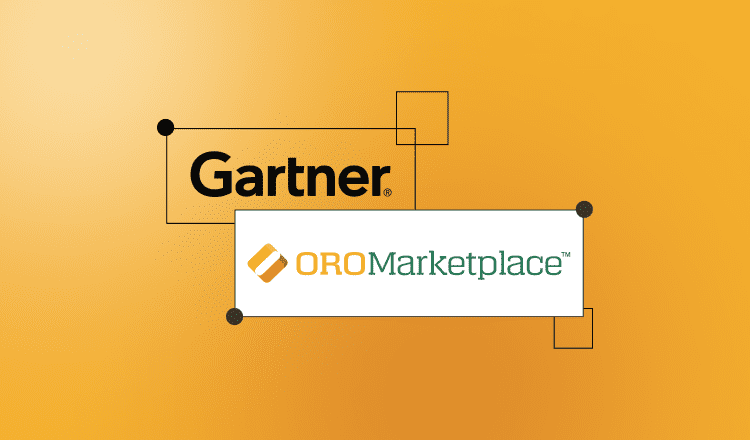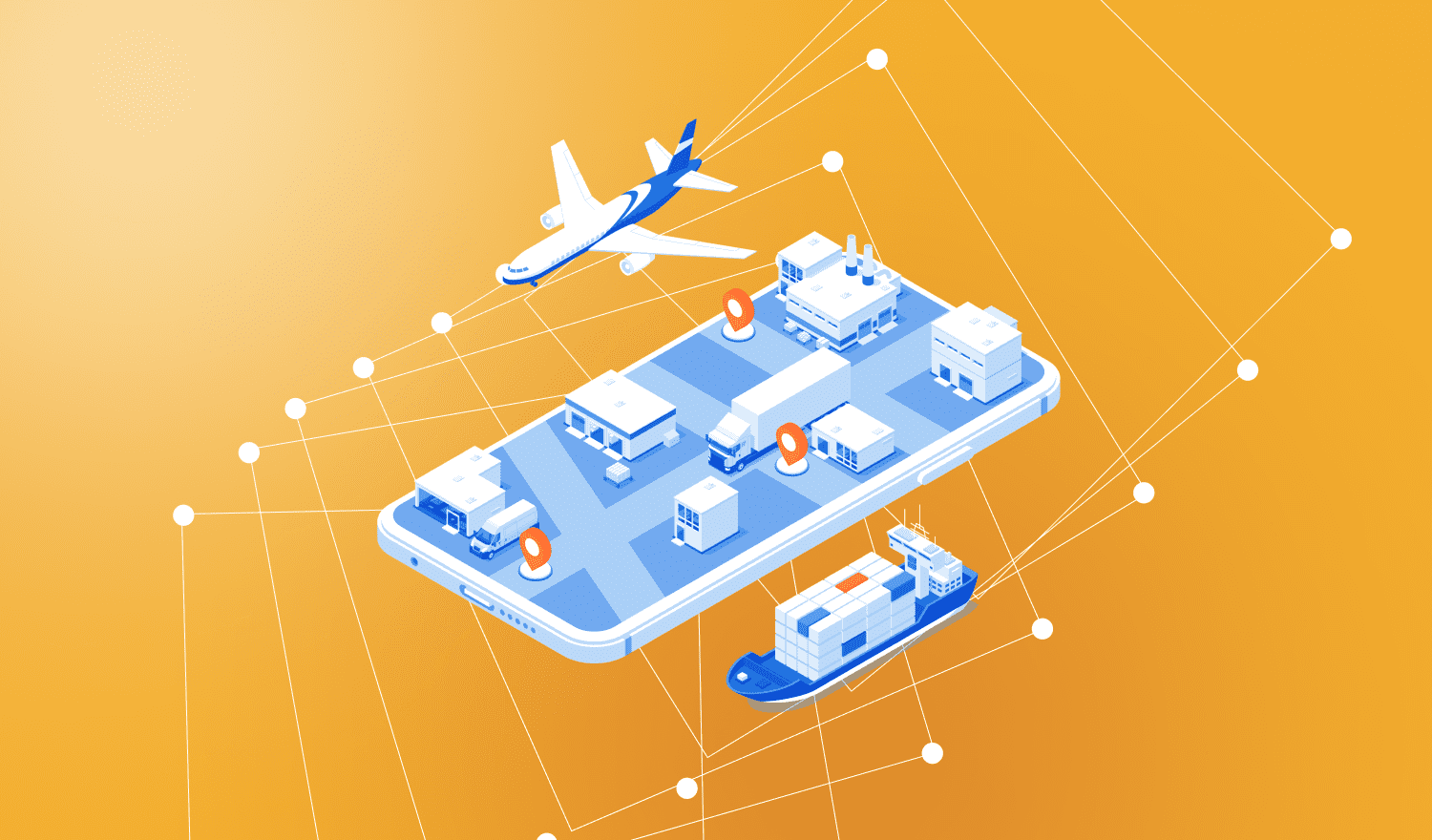Which B2B marketplaces exist, what do you need to know about them, and how can your business benefit from them? It all started with B2C marketplaces like Amazon and eBay, which have become indispensable in our everyday life. The use of these virtual trading platforms has changed the way we shop online. It has never been so easy before to find everything you wish for on a single platform and to receive your order the very next business day.
In addition to the advantage of quick and easy availability, transparency is crucial for the rapid growth of B2C marketplaces. Article prices from different manufacturers can be compared or sorted according to customer reviews just within a few seconds. Also, technologies based on artificial intelligence, e.g. voice assistants are becoming more and more popular in B2C eCommerce.
For example, the Alexa-powered device Amazon Echo Dot can place and track orders via Amazon Prime. It is technologies like voice commerce that will continue to have a significant influence on our purchasing behavior in the future. Moreover, as technology advances, the boundaries between private and professional life are blurring (1). A new generation of the workforce is emerging, a generation that grew up with the kind of eCommerce we are used to today – like the rapid availability of goods in one central place.
As a result, these appreciated B2C innovations are also expanding to the B2B sector in order to solve similar challenges or to further develop themselves in line with the conditions of the B2B sector. Just like in B2C area, the basic idea of a B2B marketplace is to automate sale and purchase, to improve the customer experience and to make the entire trading process simple and transparent. At the same time, B2B marketplaces require the right approach to building marketplace infrastructure, offering vendors the ideal selling environment, and ensuring eCommerce PCI compliance to ensure the safety of transactions.
Let’s take a closer look at three selected B2B marketplaces.
Alibaba.com
The Chinese Alibaba Group Holding Limited was founded in 1999 by former English teacher Jack Ma. It consists of the B2B platform Alibaba.com and of the online auction house Taobao. Alibaba.com claims to be the largest among B2B marketplaces in the world. With around 576 million active users and annual sales of $ 39.9 million in 2018 (2), the marketplace continues to grow rapidly. At Alibaba.com, traders can open up to the world market by offering their goods to buyers from over 190 countries at B2B trading prices. For buyers it has never been so easy to find suitable suppliers from all parts of the world, request offers, or negotiate prices. Free Insurance provides buyer protection and covers upfront payments, product quality, and shipping up to 30 days after purchase.
In addition, the Alibaba marketplace model offers financing options, production monitoring and inspection services, and cooperation as a logistics partner. Alibaba.com is suitable for companies that want to offer goods from all imaginable industries. To be registered with Alibaba as a merchant requires a fairly rigorous verification process, which requires you to submit your business license, ID documents, and IP address. Thereafter, nothing stands in the way of cooperation in the global merchant market in a variety of categories such as consumer electronics, apparel, vehicles & accessories, and many more.
Amazon Business
Amazon is the top dog in the world of eCommerce as well as B2B marketplaces. With approximately 19.9 billion US dollar sales in the year 2018 (3), Amazon is according to own data market leader in eCommerce. The listed mail order company is innovative and continues to push the voice assistant Amazon Echo Dot (Alexa) in the voice commerce sector. With programmable WLAN buttons (so-called dash buttons) goods can be ordered at the touch of a button and workflows in companies can be supported (see AWS IoT Enterprise Button).
Amazon Business is the B2B marketplace for business customers and was launched in 2015 in the US. Registration is free for companies of all sizes. Amazon Business offers features such as the option to purchase on account. Furthermore, prices and invoices are shown with VAT and purchase orders can be assigned their own purchase numbers. Currently, Amazon Business serves the product categories IT, office supplies, hand tools, electrical, cleaning products and many more. With Amazon Business Prime, business customers also benefit from Amazon Prime’s advantages such as fast and free delivery without a minimum order value as well as the creation of purchasing analyzes and guidelines.
Amazon Business sellers reach new business customers through Amazon Business and can also benefit from the offer to have their goods shipped directly through Amazon (Fulfillment by Amazon). According to its own data, Amazon Business has served more than 400,000 companies in the USA since April 2015 and has made more than $ 1 billion in sales in the first year – with Amazon dealers accounting for more than half of their orders. Meanwhile, over 45,000 Amazon resellers sell through Amazon Business. It remains exciting to see whether Amazon Business can also write a similar success story for B2B eCommerce in Europe.
eBay Business Supply
eBay Business Supply was launched in the US in 2016 and offers a comprehensive range of products in numerous categories. For example, tractors are offered alongside skid steers and mannequins in addition to cash registers. They offer deep discounts on bulk purchases but services such as buyer protection or free shipping are lacking. In addition, it is not yet clear how eBay Business Supply will position itself in Europe. Germany, for example, does not yet have its own B2B platform, but only a category within the German domain of eBay called “Business & Industry” where goods are offered for the B2B sector.
B2B Marketplaces: Conclusion
In conclusion, all B2B marketplaces stand for the rapid availability of goods in a central virtual location. For a buyer of a company, procurement via a central platform is a practical way to save time and money. Whether you own a start-up or a large corporation – this kind of process optimization gives your company a competitive edge. For retailers, B2B marketplaces and directories are a great way to tap new markets and opportunities.
There are over 1500 B2B portals worldwide. When selecting the portals that are relevant to you, it is important to consider all benefits of customer portals and note the sales fees you have to pay as an entrepreneur, as these may vary from one platform to another. It is also important to know in which product categories the marketplace is primarily represented and whether they fit your offer or your business model.
Choosing the right B2B marketplace for your company also depends on which countries you would like to supply or which delivery times you can accept as a buyer. While the marketplaces Alibaba.com, Amazon Business and ThomasNet dominate the US market, in Europe Applegate, DirectIndustry and Europages are among the top10.
No matter which option you choose – entrepreneurs who actively build a B2B marketplace offer greater value to customers, grow their ecosystems, and carve out a larger market share. Marketplaces play a pioneering role and drive the digital transformation of their business. Alternatively, you can of course also create your own B2B platform. With OroCommerce you can provide your customers with a customer portal, digitize all buyer seller-interactions and much more.
Sources
(1) http://www.absatzwirtschaft.de/verflochtenes-privat-und-geschaeftsleben-b2b-wird-das-neue-b2c-140169/
(2) https://de.wikipedia.org/wiki/Alibaba_Group
(3) https://www.boersenblatt.net/2019-02-06-artikel-bilanz_fuer_2018.1594276.html
This post was contributed by Jasmin Wilde of D-I-S commerce engineering.
About the Author
D-I-S commerce engineering was founded in 2000 by CEO Stefan Ebinger and specializes in the development and implementation of sophisticated eCommerce solutions. Our B2B and B2C
customers benefit from a broad range of high-quality and above all innovative services in the fields of eCommerce, web design, online marketing, and interface management. The B2B shops developed by us are designed to reproduce any business processes and can be connected to merchandise management and ERP systems such as SAP Business One and Microsoft Dynamics using sophisticated interface technology. In the B2C area, we design custom-tailored interfaces and, if desired, create automated sales channels for highly frequented online marketplaces such as Google Shopping and Amazon.
In addition to the planning and development of eCommerce websites, we offer individual consulting services for process optimization in the context of the digital transformation of SMEs. We prepare your company for the challenges of eCommerce and accompany you into the digital future. To strengthen our interdisciplinary work, we have access to a large partner network with extensive expertise in the areas of SAP enterprise solutions as well as receivables, credit and eCommerce management.




